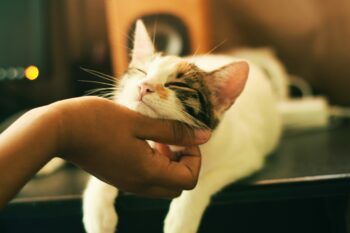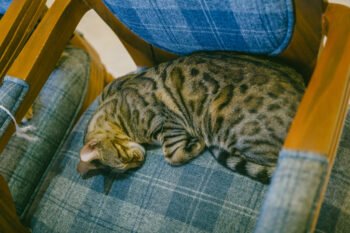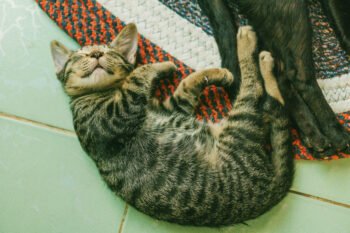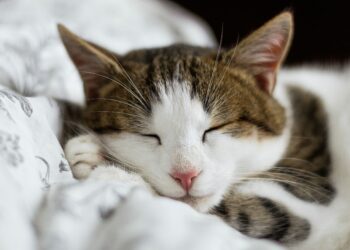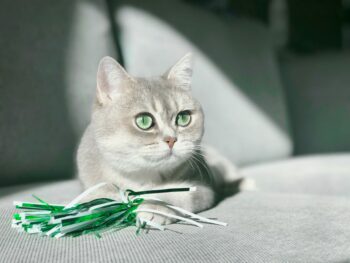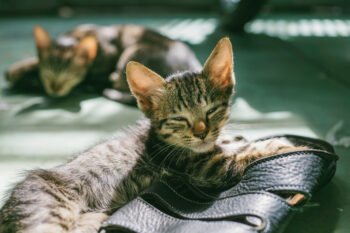Everyone’s been there. Graduation day, prom night, your wedding arrives, you look in the mirror and there it is — acne! But did you know your cat can get acne, too?
Recognizing Acne
Feline acne is a localized infection and almost always affects the chin area. It usually starts as small, oily black plugs in the chin — much like blackheads — sometimes progressing into inflamed pustules or pimples. The condition is caused by infected (or plugged) hair follicles. Grooming the chin area is difficult for kitty, which leads to a build-up of dirt and oil, and eventually, acne.
Possible Causes
Causes of feline acne vary, and include food allergies, contact allergies, lack of cleanliness, and even stress. However, plastic food and water dishes are major culprits. Plastic is a magnet for bacteria (which may irritate your cat’s skin, causing the acne) and dirt that work their way into scratches and nicks, continually infecting your cat. Switching to glass, ceramic or stainless steel bowls is the best solution, along with thoroughly washing your cat’s dishes every day. Cats with flat faces, such as Persians and Exotics, are particularly susceptible to feline acne and may need your assistance in cleaning their chins after meals.
 Treatment Options
Treatment Options
Treatment varies, but most veterinarians will recommend daily cleaning of the affected area with an antibiotic soap, followed by a topical ointment, either antibiotic or anti-fungal. Oral antibiotics may also be prescribed, as well as a scrub with hydrogen peroxide. NEVER try to pop or drain the pustules, as this spreads the infection and furthers the problem.
When feline acne does not respond to topical treatment, there are a couple of things to consider. The first one is whether or not it really is feline acne. It may be one of the conditions that can mimic feline acne, such as ringworm, food allergies, yeast infections, or demodectic mange. If it is feline acne and conventional treatments aren’t working, your veterinarian should culture one of the pustules, and then choose an oral or systemic antibiotic based on the culture results.
Feline acne can turn into serious infection, so don’t take it lightly. Talk to your veterinarian about the best course of action.

